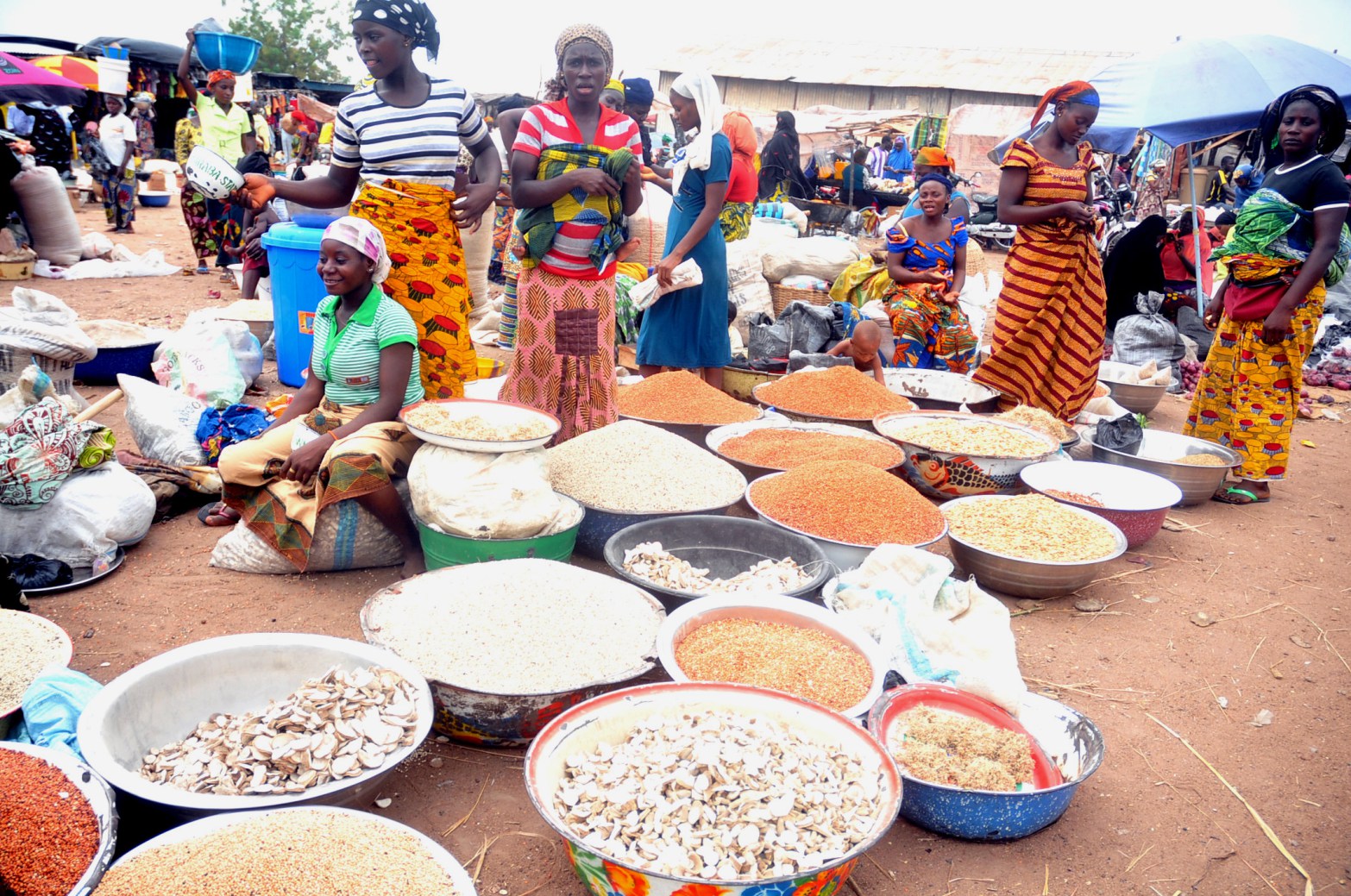Food insecurity is a major problem in Nigeria
The Food and Agriculture Organisation has estimated that Nigeria’s food security situation has worsened in the last 15 years. In an agrarian economy, the land as a unit for agricultural production provides the needed fulcrum upon which a sustainable development would blossom. Agriculture has remained an important aspect of any economy. Viable agricultural programmes and […]

FILE PHOTO
The Food and Agriculture Organisation has estimated that Nigeria’s food security situation has worsened in the last 15 years.
In an agrarian economy, the land as a unit for agricultural production provides the needed fulcrum upon which a sustainable development would blossom. Agriculture has remained an important aspect of any economy.
Viable agricultural programmes and activities in any polity are capable of sustaining the food supply and reserves needed for the welfare of the citizens. But in Nigeria, agriculture is despised as able bodied, young people do not have interest in it.
Climate change and clashes between herdsmen and farmers, the activities of Boko Haram and the recent flood crisis have added to the food insecurity challenges as population displacement, death, and non-cultivation of farmlands and the burning down of farm produce have reduced the quality and quantity of food availability.
That Nigeria faces problems with its food supply has been evident for some time now from its inflation numbers. Since March, the food inflation index, which stood at 23.12% on an annual basis in August, has trended northwards inexorably.
This has meant a reduction in disposable incomes as we now spend more for the same calorie levels as we did before the year began. For the poor and vulnerable sectors of the economy, who spend more of their earnings on food, this has meant a reduction in calorific intake, as well as a general diminution in wealth.
More importantly, beyond high prices of staple food items in Nigeria, drought and political situation in neighbouring countries like Chad, Cameroun and Niger seem to pose a threat to a state like Borno as they rely on it for their food supplies.
Another problem according to the Ministry of Agriculture and Rural Development, responsible for the food crisis in Nigeria, it is not unconnected with the fact that “Nigeria’s agriculture is mainly rain-fed and has not taken full advantage of its irrigation potential estimated at between two and 2.5 million hectares”.
The area under irrigation is officially estimated at about 220,000 hectares or less than one per cent of the total areas under crops. The contribution of irrigated agriculture to crop production is, therefore, very small.
In contrast, while drought presents a major problem for the affordability and availability of food items, excessive rain has also contributed significantly to the current hike in food prices.
Whereas climatic conditions favour the rising food prices, the deficiencies in the delivery of farm inputs also come to the fore as a major challenge to farmers. Another factor is the low usage of fertilisers, occasioned by using the poor level of availability resulting in low crop yield.
Indeed, these are challenges threatening the food security of nations. While the federal government has instructed that the strategic grains reserve be released, the agriculture minister has indicated that even this may have its shortcomings.
No doubt, one of the major objectives governments in the country must pursue in this nascent democratic era is food security. A country that cannot formulate and effectively implement agricultural and food policies may find it difficult to use the citizens as catalyst for sustainable democracy. More so, the very survival of the state is linked to the ability of its economy to meet the material demands of both people and government.
Felix Oladeji wrote from Lagos Nigeria
